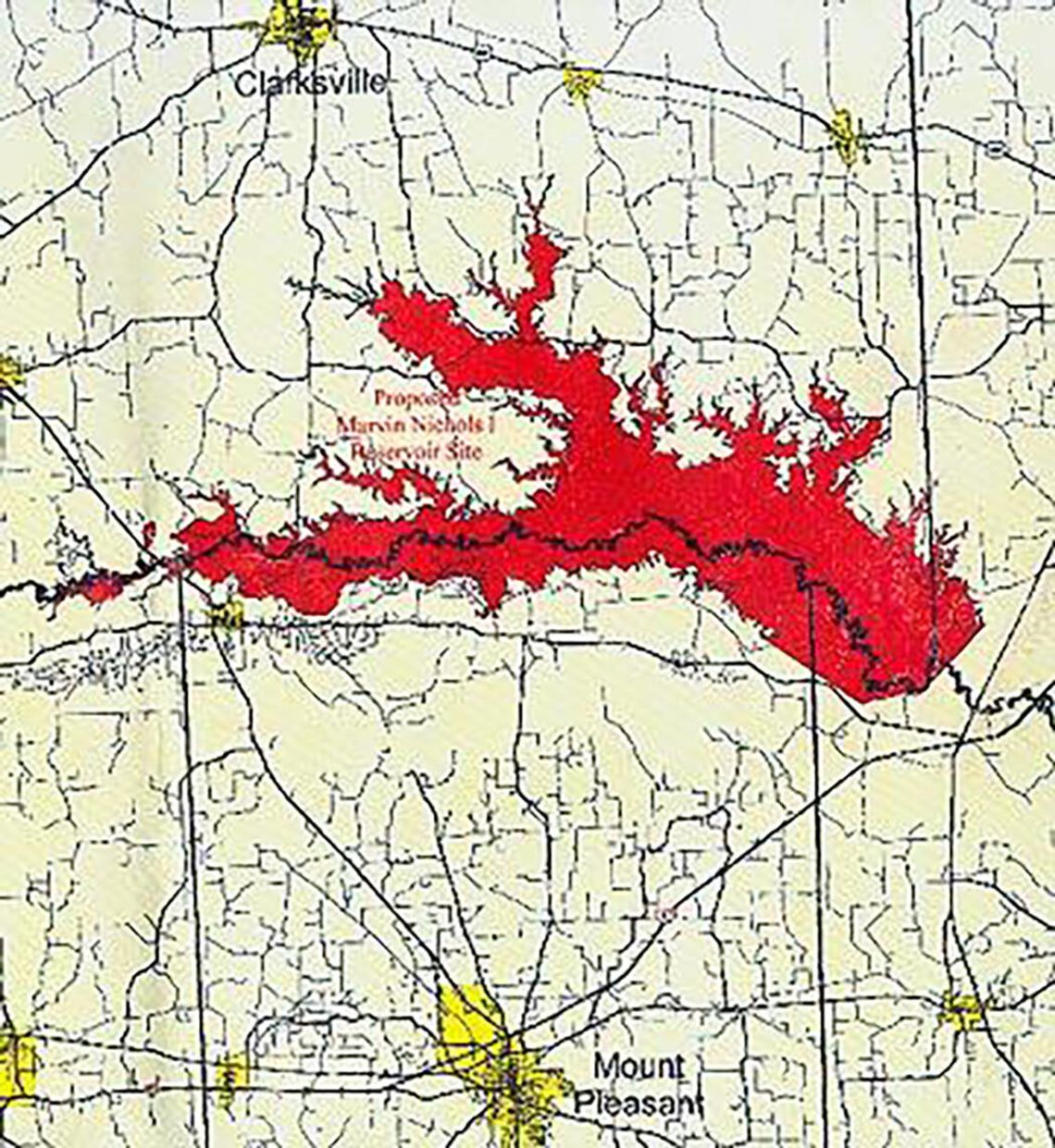By Kenny Mitchell
Publisher
Regional water planners have reached a mediated agreement on the future of the proposed Marvin Nichols Reservoir in the Sulphur River Basin, and the agreement is much awaited positive news for Northeast Texas landowners that have long fought the progress of the massive land grab.
The agreement, that has already been ratified by Region D, includes a comprehensive study that will be an “Apples-to Apples” monetary and non-monetary comparison of the Marvin Nichols and Toledo Bend projects. Study is to be conducted by firm(s) that can provide a fresh assessment, commence by March 2026, and be completed by July 2027.”
Even bigger news for those in Northeast Texas is the agreement between the two that no application for permitting would occur for Marvin Nichols prior to 2030, and that Region C will advance the Marvin Nichols project to 2070 and include Toledo Bend as a recommended water management strategy in the current round of planning. Toledo Bend is now made a Recommended Strategy (alongside Marvin Nichols Reservoir) in the Region C plan so both can be explored.
Following the mediated agreement, those with Preserve Northeast Texas, the group at the forefront of fighting the proposed reservoir issued a statement saying, “While we are relieved that the timeline has once again been pushed back, mitigating the immediate threat of the reservoir, we remain deeply concerned that this destructive project continues to be considered as an option for Region C. The mediated agreement importantly calls for a comprehensive study of the environmental, social, and economic impacts of the proposed reservoir. The study should be conducted with the utmost rigor and impartiality, ensuring that all potential consequences are evaluated. While the short timeframe for producing such a study is concerning, we remain hopeful it will be a thorough and impartial review. We are confident the damaging impacts of this reservoir deem this project impractical, unfeasible and unnecessary.”
Region D Board member Fred Milton, from New Boston, said of the agreement, “We feel like the mediation agreement is a win-win for Region D. The study will collect data and be a very specific study that will give us a straightforward picture of what it will do to our area. We believe it will force Region C to look elsewhere for a source of water. We feel like there has been a gross understatement of all of the costs and we believe this study will give us accurate costs, and we think looking at Toledo Bend makes them look at water sources that are already impounded instead of damaging other environmental resources.”
See more on this developing story in next week’s print issue of the Tribune.






